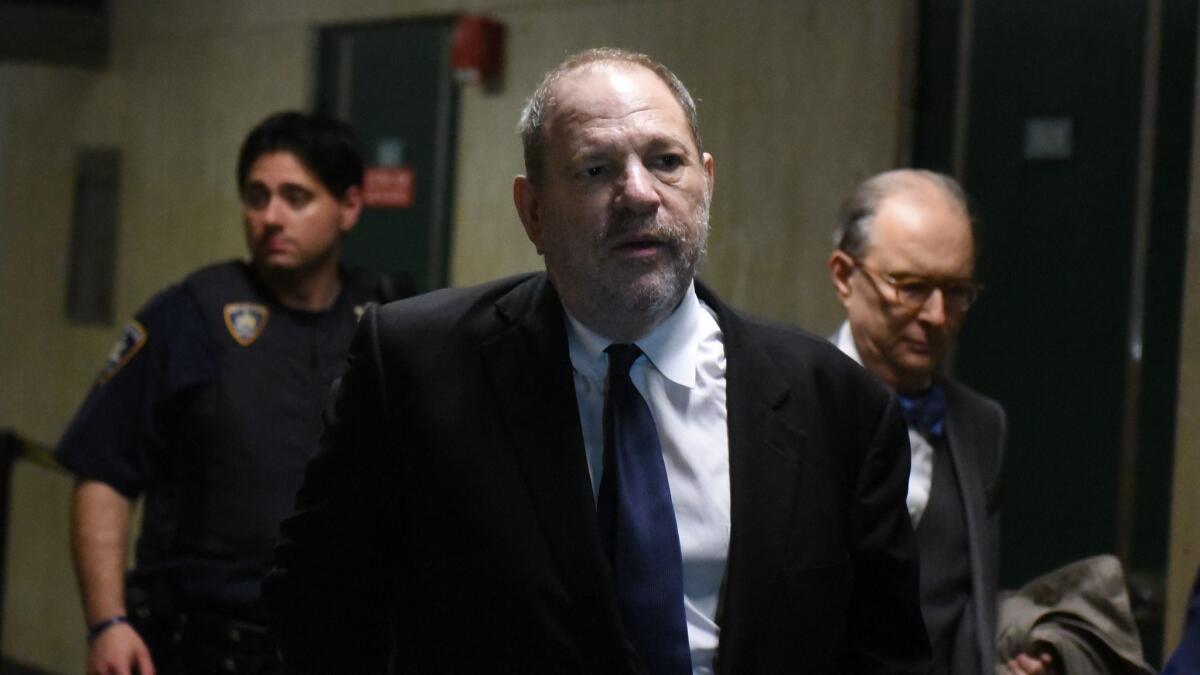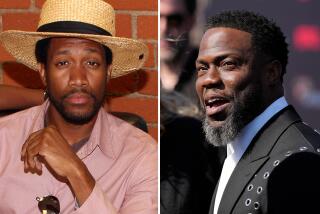Gloria Allred: Assault victims have every right to keep their trauma and their settlements private

- Share via
The #MeToo movement has elevated the voices of sexual assault victims, making it more likely that victims will come forward. But movement supporters are wrong to attack confidential settlement agreements that can help vulnerable victims get a measure of justice.
This issue has arisen in the new book “She Said,” by the reporters who broke the Harvey Weinstein sex abuse scandal. They have said that they talked to victims, some of whom chose to violate their confidential settlement agreements. The reporters have criticized victims’ rights lawyers (like me) for assisting clients to settle their legal claims against sexual predators by entering into such agreements.
The reporters have argued that victims would help other women by speaking out. They have praised victims who told their stories even when doing so violated settlement agreements that the victims entered into voluntarily. Breaching a settlement agreement exposes the victim to a lawsuit by the accused and the resultant costs, financial and emotional, of defending that lawsuit.
Some people may be shocked that lawyers, especially a feminist lawyer like me, would ever assist a client to enter a confidential settlement. The alternative, however, would be to insist that victims be denied the choice to settle their case, and be forced to file lawsuits, appear for depositions, answer interrogatories, testify publicly under oath and take the risk that a jury will not believe them. Even if a jury finds in the victim’s favor, the defendant could appeal and the victim may never collect anything at all if the defendant is successful.
My law firm is the leading women’s rights law firm in the United States. In the 43 years that we have been practicing law, we have represented thousands of victims of rape, child sexual abuse, sexual assault and sexual harassment. We have settled thousands of cases confidentially for our clients who wish to exercise that option and we have litigated lawsuits for many others. We make no apologies for supporting victims who are brave enough to seek accountability from sexual predators and justice for the injustice that has been inflicted on them.
Women do not choose to be sexually assaulted or raped. When that occurs, their choice to be free of sexual violence is taken away from them by the sexual predator. We believe that victims should at the very least have choices when it comes to asserting their legal rights against the person or company that victimized them. We provide victims with legal choices, which include filing a lawsuit or the possibility of entering into a settlement that avoids their having to file a lawsuit and litigating their case publicly for years.
Lawsuits often only increase the suffering of victims. Many victims choose to protect their privacy and want to enter into a confidential settlement to avoid having to file a public lawsuit. At the same time, defendants often refuse to enter into any settlement unless it is confidential.
I always present my clients with all the benefits and risks of each of their legal options so that they can make an informed decision as to what they believe is in their best interest. We do not tell our clients what to do. They decide.
A new California law, Senate Bill 820, prohibits confidentiality agreements in settlements of lawsuits involving sexual assault, sexual harassment and gender discrimination claims after a lawsuit or administrative charge has been publicly filed by the victim. I fully support victims who choose to go public with their claims and I equally support victims who want to maintain their privacy and confidentially settle their claims. As a private victim’s rights attorney, my duty is to support my client in the choice she makes.
Many victims want the opportunity to enter a confidential settlement because they are unwilling to have what happened to them made known to their family members, their co-workers, their future employers or the general public. That is their right and they have no obligation to anyone to sacrifice their privacy.
Advocates who call confidential settlements “hush money” are ignorant of the law. There are significant exceptions to confidential agreements. For example, even if a victim has signed a confidential settlement agreement, she may still testify in a criminal case against the predator. She is never prohibited from sharing what happened to her with law enforcement, and she may testify in a public criminal case against the predator if she is called as a victim or witness. A victim can also testify in a deposition or trial in a civil case if she is subpoenaed to do so.
We believe victims should have the right to choose whether or not to enter into a voluntary confidential settlement and no one, including the press and politicians, should take that right and choice away from victims.
Gloria Allred is a partner in the law firm of Allred, Maroko and Goldberg. She has received the Lifetime Achievement Award from the National Trial Lawyers and was recently inducted into the National Women’s Hall of Fame.
More to Read
A cure for the common opinion
Get thought-provoking perspectives with our weekly newsletter.
You may occasionally receive promotional content from the Los Angeles Times.






